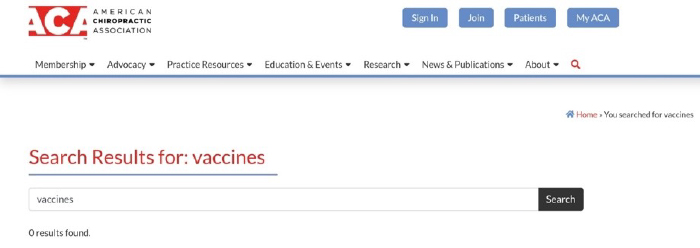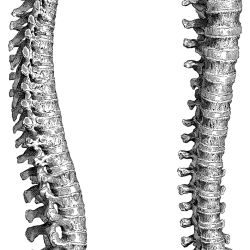Everyone should have a primary care provider (PCP), but not everyone does. There are myriad reasons why: some choose not to go to the doctor (hello, young people); some can’t afford care; others may live in provider “deserts” such as rural areas. Whatever the reason, a growing movement exists to expand who can act as a PCP. Chiropractors have been a part of this expansion, but is that wise?
Training for Chiropractors
Chiropractors must complete a Doctor of Chiropractic (DC) degree, typically over three to four years. Some claim that this training is similar to going to medical school:
“Chiropractors study many of the same subjects a[s] MDs, such as anatomy, physiology, microbiology, radiology, orthopedics, etc. The number of contact hours (classes, labs, patient experience time) for chiropractic students is similar to medical school students, with more than 4,500 hours.”
There are a couple of points to consider about this. First, chiropractors are not trained in pharmacology. They cannot prescribe medications. If you have strep throat, your chiropractor's PCP cannot prescribe penicillin for you. Even if they refer you to a medical professional with a prescription pad, this has delayed your care.
The American Chiropractic Association (ACA) has a Council on Diagnosis and Internal Disorders (ACA-CDID). The ACA-CDID works with DABCI University to provide DCs with additional education and a “Diplomate of the American Board of Chiropractic Internists” certification. This DABCI is supposed to provide more training for DCs to act as PCPs. But DABCI University is not actually a university. It is the Integrative Biologics Institute doing business as DABCI University (see their “Contact Us” section). They have a Gmail account (most educational institutions have .edu domain email addresses). It’s also online. While I have nothing against online education and generally think it’s great to have expanded access to education in a clinical profession and for education specifically targeting becoming a PCP, online might not cut it.
“DABCIs first look to holistic and natural approaches to treat the cause of the illness, while many traditional doctors often turn to prescription medication to treat the symptoms of an illness. Let’s say you’re experiencing acid reflux or heartburn. While traditional doctors might prescribe antacid medicine to stop the stomach from secreting the acid, a DABCI will try to get to the bottom of why the stomach is inflamed or what caused the stomach ulcer. DABCIs try to avoid pumping the body with synthetic hormones and other prescriptions.” - Loehr Health Center
So, DCs aren’t trained in pharmacology and “try to avoid pumping the body with synthetic hormones and other prescriptions,” which should be easy to do considering they cannot legally prescribe medication. However, DABCI does include some training in supplements, and supplements can be recommended by anyone regardless of training in pharmacology or not.
Vaccines and Chiropractors
For those keeping track, chiropractors would like to act as PCPs, are not trained in pharmacology, receive some training in supplements, and wish to avoid pumping the body full of “synthetic” hormones and substances. At this point, it would be natural to wonder about the profession’s stance on vaccines.
First, look at similar professional organizations to establish a reasonable expectation. The American Medical Association has firmly taken a stance on vaccines and provides resources for physicians to help communicate with patients. There is no question about where they stand on the topic, whether it be vaccines in general or COVID-19 vaccines specifically. Ditto the American Osteopathic Association and American Association of Colleges of Osteopathic Medicine. There is a contingent of vaccine-hesitant MDs and DOs. There is also an anti-vax contingent of MDs and DOs. The vaccine hesitant can be considered misguided and cautious, while anti-vaxxers often have more misinformation and an underlying political agenda. The two groups pose a threat but are, thankfully, the minority. They’re also clearly acting against the recommendations of their professional organizations.
 Let’s now turn to the American Chiropractic Association (ACA). Unlike the American Medical Association or American Osteopathic Association, they seem to take no stance on vaccines. None. Zip. Zilch. As of this writing, if you go to the ACA website and search for “vaccines,” zero results are returned. Venturing over to the ACA-CDID, there is a category under their “News and Articles” section for ‘Vaccines.’ This seems promising! However, when you click on it, it returns one article on influenza vaccines from Fox News from 2017. It's not an original article. It's not a perspective piece. No recommendations are to be found—nothing even on the COVID-19 vaccines. Basically, there is effectively nothing on ACA-CDID’s website either. We’re oh for two.
Let’s now turn to the American Chiropractic Association (ACA). Unlike the American Medical Association or American Osteopathic Association, they seem to take no stance on vaccines. None. Zip. Zilch. As of this writing, if you go to the ACA website and search for “vaccines,” zero results are returned. Venturing over to the ACA-CDID, there is a category under their “News and Articles” section for ‘Vaccines.’ This seems promising! However, when you click on it, it returns one article on influenza vaccines from Fox News from 2017. It's not an original article. It's not a perspective piece. No recommendations are to be found—nothing even on the COVID-19 vaccines. Basically, there is effectively nothing on ACA-CDID’s website either. We’re oh for two.
The last one we’ll try is DABCI University. No, it’s not a professional organization, but it does train DCs. The words ‘university’ and ‘internist’ are involved, so they must talk about vaccines…right? Wrong again. While there is a lot of content available only to paying members and students, the sections of their website that are publicly available are noticeably short on vaccine information. There is a section dedicated to articles, currently including five whole articles, and not a single one talked about vaccines. One report addresses the pharmacokinetics of coffee enemas, but none talks about one of the most fundamental tools PCPs have to help prevent illness.
Why It’s Important
Chiropractic was defined by DD. Palmer, its founder, as “a science of healing without drugs.” It relies on spinal manipulation. In traditional chiropractic, there is no room for medications at all. A rift has developed within the profession, and some chiropractors, those seeking that internal medicine certification, “try to avoid pumping the body with synthetic hormones and other prescriptions.”
During the COVID-19 pandemic, several prominent chiropractors publicly pushed anti-vaccine views. To highlight just a few prominent examples: Vax Con ’21, Mile Hi Chiro, and Ben Tapper. Vax Con ’21 was organized and orchestrated by the Chiropractic Society of Wisconsin. It featured Judy Mikovits, of Plandemic fame, as a speaker and touted her book with a forward written by Robert F. Kennedy Jr. It offered continuing education units (CEUs) to DCs to attend this anti-vaccine conference that peddled misinformation about COVID-19 vaccines and other prevention measures. Healthcare providers are often required to complete a certain number of continuing education units to maintain licensure, ensuring that they stay current and sharp as healthcare evolves or, in this case, devolves.
This conference was not unique in this either. Mile Hi Chiro was just held in Denver in September of this year, had several questionable speakers (including RFK and Ben Tapper of Disinformation Dozen fame), and offered continuing education. If professional conferences offer continuing education units for attendees and push vaccine misinformation, that should concern everyone. Especially if the profession in question wants to act as PCPs.
Despite training in a system that believes “the body has an innate intelligence, and the power to heal itself if it is functioning properly, and that chiropractic care can help it do that,” without medications, but frequently with supplements, roughly 58% of Oregon’s chiropractors were vaccinated against COVID-19. That said, their training and inclination, along with the silence of their professional organizations and the chiropractic conferences featuring anti-vaccine sentiment, make them a profession that, at the very least, doesn’t consider vaccinations or medications viable health alternatives. We’re now talking about an entire profession that wants to be PCPs.
Irrespective of your belief about the efficacy of COVID-19 vaccination, the germ theory of disease remains unchallenged. Anyone unwilling to work to treat and prevent infectious diseases within their community with the most effective means at our disposal should not be allowed to dispense medical advice. Chiropractors lack the basic training that a PCP should have. I’ve said it before and I’ll say it again: I want healthcare accessible for everyone. But, if you’re looking for a PCP, consider going to an MD, DO, NP, or PA - they come fully equipped for your primary care needs.

